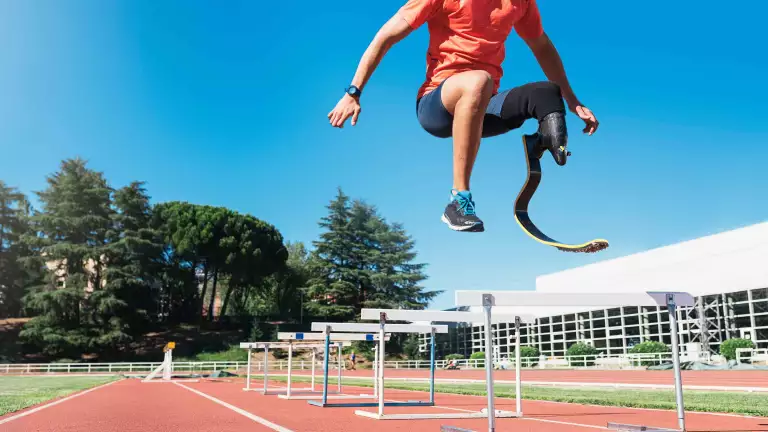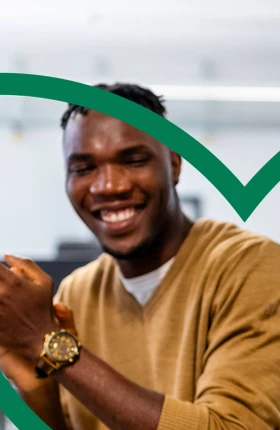Right now, the Paris 2024 Paralympic Games are showcasing the pinnacle of human ability.
With about 4,400 athletes competing in 22 sports, the Games are the largest in history. They are receiving more hours of media coverage than ever before, and all sports are being broadcast live for the first time.
The So What
The World Health Organization estimates that about 1.3 billion people experience significant disability—16% of the world’s population.
“The Paralympic Games represent the biggest stage in the world for athletes with disabilities, and, more broadly, the Paralympic Movement pushes for equity beyond sports,” says Hillary Wool, a BCG partner, coleader of AccessAbility@BCG in North America, and paratriathlete.
“This year’s Games—receiving well-deserved expanded media coverage—challenge organizations to achieve higher levels of inclusion and representation of people with disabilities in the workplace.”
Now What
Here are five lessons about workplace inclusion from the Paris Paralympics and the Olympic Games before them.
Nurture excellence. The Paralympic Games demonstrate what people with disabilities can accomplish with the right accommodations, coaching, and support. Companies have sometimes considered inclusion efforts as part of their moral duty or social responsibility. But prioritizing inclusion gives people with disabilities the chance to excel. Neglecting this talent pool is a lost opportunity for businesses, especially when talent is in short supply.
To support career success for people with disabilities, companies should expand mentoring programs and establish a system to agree on reasonable accommodations and tailored support systems.
Embrace equitable and inclusive design. Adidas, which produced the sports kit for a number of Paralympic and Olympic teams, says that 81% of its apparel was created using design principles that work for athletes with and without a disability. Universal design includes not using small buttons and not placing team logos on places that can’t be seen when in a wheelchair, for example. Similarly, the Olympic Village, venues, and new transport links were built according to the principles of universal urban design.
Inclusive product design sends an important message to customers about a brand’s values. It also makes financial sense by providing a better customer experience and improving market penetration and reach. Rather than being an added extra, inclusive design should be seen as fundamental to product strategy.
Encourage honesty and authenticity. In the Paris Olympics that preceded the Paralympics this summer, one of the most decorated swimmers of all time, Katie Ledecky, explained how POTS—a condition that affects the nervous system—impacts her body. Gold-medal gymnast Suni Lee talked about navigating incurable kidney disease. Kayaker Aaron Small, who wears hearing aids, spoke about being a role model for children with hearing loss.
These stories demonstrate a new willingness to share personal information about health conditions and disabilities that may not be apparent. And the narrative is changing from one where challenges are concealed to one where obstacles are seen as an opportunity for perseverance and trailblazing.
There’s a parallel shift in the workplace. BCG research suggests that employees with disabilities significantly underdisclose to their employers, perhaps fearing stigma or a negative impact on their job security or promotion prospects. Given this reality, managers should proactively aim to foster psychological safety and openness. They can model this by being honest about any personal struggles of their own. While this boosts individual career success, it can also have a positive impact on a company’s bottom line. BCG research suggests that psychological safety can reduce the risk of attrition to less than 3% of workers. And it has an even greater impact on the retention of people with disabilities.
Use inclusive—and accurate—language. The International Paralympic Committee launched a social media campaign in which leading Paralympians highlight language bias from journalists and commentators. The athletes stress they are “competing” rather than “participating” in the Games. It’s just one example of how language can cause divisions and reveal different attitudes towards nondisabled athletes and paraathletes.
This parallels some of the challenges that companies may face when promoting equitable representation and success among people with disabilities. Employees with disabilities can inadvertently be depicted as not having the same value and leadership potential as nondisabled counterparts. A conscious inclusion strategy can challenge these assumptions by highlighting disabled leaders within and beyond the company, and fostering understanding of systemic ableism, bias, and inequity.
Believe in the power of human adaptability. Above all, the Paralympic Games demonstrate the power of human adaptability. Whether an athlete was born with a congenital condition or acquired a disability later in life, Paralympians have adapted their bodies and the equipment they need to train and compete at the highest levels.
Whether companies are thinking about the advent of AI, reskilling, or shifting a business strategy, there is a sense of possibility that should be drawn from the spirit of human adaptability—and willingness to find new ways to perform, achieve, and excel.
“The music and dance-filled Opening Ceremony of the Paris 2024 Paralympic Games vibrantly highlighted the paradoxes of society—in which people with disabilities are celebrated on the sports field, yet face inaccessibility and ableism in everyday life,” says Wool.
“The business community can take a cue from this powerful performance on the world stage.”




